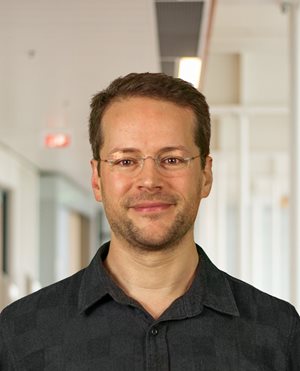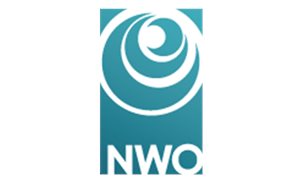10 January 2018

Neuroscientist Martin Dresler, demonstrated with his international colleagues, that the art of exceptional memory performance can be taught. A six-week memory training programme of 30 minutes per day made a “normal” brain seem more like that of a memory champion. In addition to the research showing that a super memory can indeed be achieved through training—something which had been doubted until then—it also had an immediate application for the public: one that can be used by children at school, but also by elderly people who want to keep their brains healthy.
The results were published on hundreds of websites, including a number of large international ones from the American, English, French, Spanish, German, Portuguese, Bosnian and Danish media landscape. Along with their colleagues, Martin Dresler and Boris Konrad gave an enthusiastic report of the research.
The jury praises the research for its originality, relevance and appealing nature as well as the way in which Dresler and Konrad presented the results in so many different international media.
The two other awards, Hermesdorf Award and Hermesdorf Award for Young Talent, are given to ecologists Hans de Kroon and Caspar Hallmann and thanatologist Brenda Mathijssen respectively.
 On 8 January 2018, the 2017 Hermesdorf International Award was granted to neuroscientist Martin Dresler. The Hermesdorf Award is given to Radboud researchers who have received special attention in the media over the past year for their work. The Executive Board grants the awards on the recommendation of a jury under the direction of the former Rector Magnificus, Bas Kortmann.
On 8 January 2018, the 2017 Hermesdorf International Award was granted to neuroscientist Martin Dresler. The Hermesdorf Award is given to Radboud researchers who have received special attention in the media over the past year for their work. The Executive Board grants the awards on the recommendation of a jury under the direction of the former Rector Magnificus, Bas Kortmann.
Neuroscientist Martin Dresler, demonstrated with his international colleagues, that the art of exceptional memory performance can be taught. A six-week memory training programme of 30 minutes per day made a “normal” brain seem more like that of a memory champion. In addition to the research showing that a super memory can indeed be achieved through training—something which had been doubted until then—it also had an immediate application for the public: one that can be used by children at school, but also by elderly people who want to keep their brains healthy.
The results were published on hundreds of websites, including a number of large international ones from the American, English, French, Spanish, German, Portuguese, Bosnian and Danish media landscape. Along with their colleagues, Martin Dresler and Boris Konrad gave an enthusiastic report of the research.
The jury praises the research for its originality, relevance and appealing nature as well as the way in which Dresler and Konrad presented the results in so many different international media.
The two other awards, Hermesdorf Award and Hermesdorf Award for Young Talent, are given to ecologists Hans de Kroon and Caspar Hallmann and thanatologist Brenda Mathijssen respectively.
Related news items

Three Vici grants for Radboudumc researchers
20 February 2020 Christian Beckmann, Sander Leeuwenburgh and Annette Schenck each receive a 1.5 million euro Vici research grant from NWO. go to page
Judith Homberg appointed Professor of Translational Neuroscience
20 March 2019 Judith Homberg has been appointed Professor of Tanslational Neuroscience effective 1 February 2019. go to page
Ultrahigh-resolution MRI reveals structural brain differences in serotonin transporter knockout rats after sucrose and cocaine self-administration
20 February 2019 In Addiction Biology Peter Karel and Judith Homberg showed that rats lacking the serotonin transporter show increased cocaine, but unaltered sucrose, self-administration. go to page
Stress hormone may improve exposure therapy for patients suffering from PTSD
7 February 2019 Exposure therapy is effective in about half of the patients with PTSD. This percentage may possibly increase due to the targeted use of cortisol in the right patients. Benno Roozendaal received a TOP subsidy from ZonMw to investigate this. go to page
MRI scans reveal brain profile of concussions Over fifty Canadian rugby players followed
2 January 2019 Researchers from Radboudumc and Western University Canada performed MRI scans in more than fifty female rugby players. They show a deviant pattern in the brain after an acute concussion. go to page
